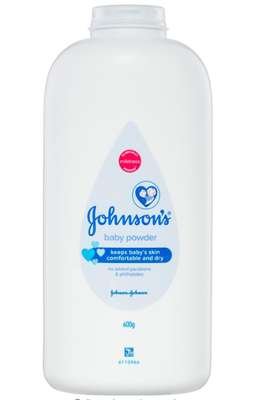Johnson & Johnson's to pay $6.5 billion due to talc powder's effects
By
Danielle F.
- Replies 12
For decades, talcum powder has been a staple in bathrooms and nurseries worldwide and has been praised for its moisture-absorbing properties.
However, the safety of this product went under intense scrutiny, as numerous studies and personal testimonies suggested a link between long-term talc use and the development of ovarian cancer and mesothelioma—a cancer associated with asbestos exposure.
In a landmark decision, Johnson & Johnson agreed to a staggering US$6.5 billion (A$ 9.9 billion) settlement over claims that its talc-based products caused ovarian cancer in women.
This proposed deal, which aims to resolve more than 54,000 lawsuits, marked a significant moment for consumer safety and corporate accountability.
However, for the settlement to push through, about 75 per cent of the people who filed lawsuits must vote in favour of the deal within the next three months.
The North American pharmaceutical giant consistently denied these allegations and kept its stance that its talcum powder is safe, asbestos-free, and not a cancer risk.
However, the company discontinued the sale of talc-based baby powder.
The settlement came after a series of legal battles for J&J—including a US$700 million (A$ 1 billion) payment to states over misleading advertising and a US$2.12 billion (A$ 3.2 billion) payout to 22 women who claimed the powder gave them cancer.
Recently, the company paid US$45 million (A$ 68.9 million) to a family whose mother died due to cancer linked to talcum powder usage.
While the exact distribution of the funds has not been detailed, individuals who have developed cancer potentially linked to the product may be entitled to compensation.
The proposed settlement highlighted the importance of corporate responsibility and collective legal action power.
'We firmly believe this plan is in the best interests of claimants and should receive a favourable and immediate confirmation from the bankruptcy court.' Erik Haas, J&J Worldwide Vice President for Litigation, said.
'As that track record shows, most bearing claimants have not recovered, nor are they expected to ever recover anything at trial. At the rate at which cases have been tried, it would take decades to try the remaining cases, meaning most claimants will never see their day in court.'
For the claimants—many of whom have faced devastating health consequences—the settlement offered a chance for closure and financial support for ongoing medical needs.
Lora Stahl, one of the victims who sued J&J, stated that the talcum powder's detriments robbed her of a growing family.
The 56-year-old was forced to have her ovaries, cervix, and uterus removed to prevent the cancer from spreading in her body.
'I was still in my childbearing years; my husband and I were still young. I was lying there, and it just hit me—"I can't have kids anymore. We're done having a family. We don't have a choice,"' she lamented.
As we reflect on this news, it's crucial to consider the implications for product safety.
This case underscores the need for rigorous testing and transparent marketing of consumer products, especially those used on our bodies.
It also serves as a reminder that companies, no matter how large, are accountable for the safety of their products.
For those affected by the Johnson & Johnson talc powder issue, the settlement may provide a path to compensation and justice.

Have you or someone you know been affected by using talc powder? We encourage you to share your experiences and thoughts on this issue in the comments below.
However, the safety of this product went under intense scrutiny, as numerous studies and personal testimonies suggested a link between long-term talc use and the development of ovarian cancer and mesothelioma—a cancer associated with asbestos exposure.
In a landmark decision, Johnson & Johnson agreed to a staggering US$6.5 billion (A$ 9.9 billion) settlement over claims that its talc-based products caused ovarian cancer in women.
This proposed deal, which aims to resolve more than 54,000 lawsuits, marked a significant moment for consumer safety and corporate accountability.
However, for the settlement to push through, about 75 per cent of the people who filed lawsuits must vote in favour of the deal within the next three months.
The North American pharmaceutical giant consistently denied these allegations and kept its stance that its talcum powder is safe, asbestos-free, and not a cancer risk.
However, the company discontinued the sale of talc-based baby powder.
The settlement came after a series of legal battles for J&J—including a US$700 million (A$ 1 billion) payment to states over misleading advertising and a US$2.12 billion (A$ 3.2 billion) payout to 22 women who claimed the powder gave them cancer.
Recently, the company paid US$45 million (A$ 68.9 million) to a family whose mother died due to cancer linked to talcum powder usage.
While the exact distribution of the funds has not been detailed, individuals who have developed cancer potentially linked to the product may be entitled to compensation.
The proposed settlement highlighted the importance of corporate responsibility and collective legal action power.
'We firmly believe this plan is in the best interests of claimants and should receive a favourable and immediate confirmation from the bankruptcy court.' Erik Haas, J&J Worldwide Vice President for Litigation, said.
'As that track record shows, most bearing claimants have not recovered, nor are they expected to ever recover anything at trial. At the rate at which cases have been tried, it would take decades to try the remaining cases, meaning most claimants will never see their day in court.'
For the claimants—many of whom have faced devastating health consequences—the settlement offered a chance for closure and financial support for ongoing medical needs.
Lora Stahl, one of the victims who sued J&J, stated that the talcum powder's detriments robbed her of a growing family.
The 56-year-old was forced to have her ovaries, cervix, and uterus removed to prevent the cancer from spreading in her body.
'I was still in my childbearing years; my husband and I were still young. I was lying there, and it just hit me—"I can't have kids anymore. We're done having a family. We don't have a choice,"' she lamented.
As we reflect on this news, it's crucial to consider the implications for product safety.
This case underscores the need for rigorous testing and transparent marketing of consumer products, especially those used on our bodies.
It also serves as a reminder that companies, no matter how large, are accountable for the safety of their products.
For those affected by the Johnson & Johnson talc powder issue, the settlement may provide a path to compensation and justice.
Key Takeaways
- Johnson & Johnson proposed a deal to pay $6.5 billion to settle over 54,000 lawsuits claiming its talc powder causes ovarian cancer.
- The pharmaceutical giant has already made significant payouts to cancer patients, and another payout due to misleading advertising.
- Johnson & Johnson continued to assert that its talcum powder is safe and does not cause cancer.
- Under the proposed settlement, claimants must vote in favour of the deal, requiring at least a 75 per cent approval rate within the next three months.








